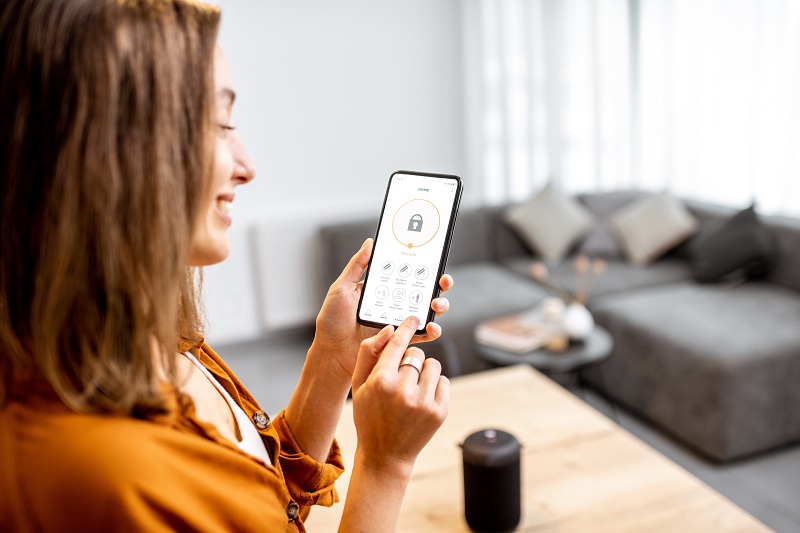Owning a home is no easy task. Investing in a reliable, up-to-date home security system can quite literally make or break your home. A good home security system not only deters burglars from breaking into your home but also gives you peace of mind.
With new home security products being released into the market every year, it is important to stay updated with the latest trends. This will help you choose the most suitable products for your home and stay one step ahead of burglars. In this article, we’ll take you through the five most promising home security trends for 2022.
Smart Home Security
It is no surprise that this is top on our list – WiFi-enabled smart home devices are not just produced by home security companies anymore but by tech giants like Apple, Google, and Amazon.
You can use voice-controlled commands for just about anything in your home, from turning the lights on, closing the blinds, starting equipment, locking the door, and turning on your home’s security alarm. In the years to come, an even more integrated home security system is certainly something to watch out for.
Universal home automation will help you control your entire home with a single app. In fact, a new trend is to seamlessly blend smart devices into your home. For instance, the new Amazon Echo Show comes with a security camera that can watch out for intruders. When not in use, it doubles as a picture frame.
An added advantage of having a variety of smart home security devices is that most of them can be installed easily without requiring the services of a professional.
Remote-controlled Security
With smart devices taking over the home, integrating IoT (Internet-of-Things) into your devices is the next step. This will enable your devices to ‘speak’ to each other. You can already program your security devices to automatically turn on when you leave your home, through GPS integration.
Remote-controlled security in the coming years will get even smarter. If a device senses a break-in, it can automatically lock the doors leading to your safe, and alert law enforcement.
A bonus to WiFi-enabled, remote-controlled security is that it supports cloud-based integration. Melbourne Locksmiths swear by the advantage of using the cloud to store security footage. “This allows you to store high-resolution security footage so that you can monitor your home from any location. This will also arm you with backup footage in case burglars destroy your cameras in hopes of erasing locally stored footage.”

Using AI to reduce false alarms
Integrating smart devices into home security holds significant promises in the field of AI. While traditional home security devices do not use learning algorithms, AI uses intuitive programs to recognise, learn, and predict behaviour over time.
This means that using AI in your home security system can help you reduce false alarms and potentially predict crime before it happens.
Using AI in home security systems reduces the pressure on law enforcement officials to respond to false alarms. In addition, monitoring routine home systems through AI can help you identify unusual phenomena before things go wrong.
Using better cameras
Gone are the days of grainy CCTV footage. With cloud-based storage and 5G network connectivity on the rise, home security cameras can afford to record high-quality footage in 4K with a high FPS and upload it directly to the cloud. This will allow law enforcement officials to not only identify faces more clearly but also keep track of licence plate numbers and any other identifying information.
Newer cameras also promise more durability in terms of braving weather conditions like rain, fog, snow, storms, and dust.
Biometric passwords
A recent development in keyless entry technology is using fingerprint locks for doors. In the coming years, other biometrics like facial recognition and iris scans (with high-quality cameras and sensors) may be used for home security systems. Not only is this contactless, but it could help identify intruders at the door with ease.
Another development in facial recognition is predicted to be in recognising known faces through cloud-shared security camera footage and social media profiles. With smartphones already identifying common faces in photos, integrating this into security systems could make it easier for you to allow your loved ones to access the door when you are not at home.
The Bottom Line
Knowing your home is safe lets you leave your property for longer periods without worrying about your valuables getting stolen. Keeping yourself informed about new developments in home security can also help you figure out what best suits your security needs.






